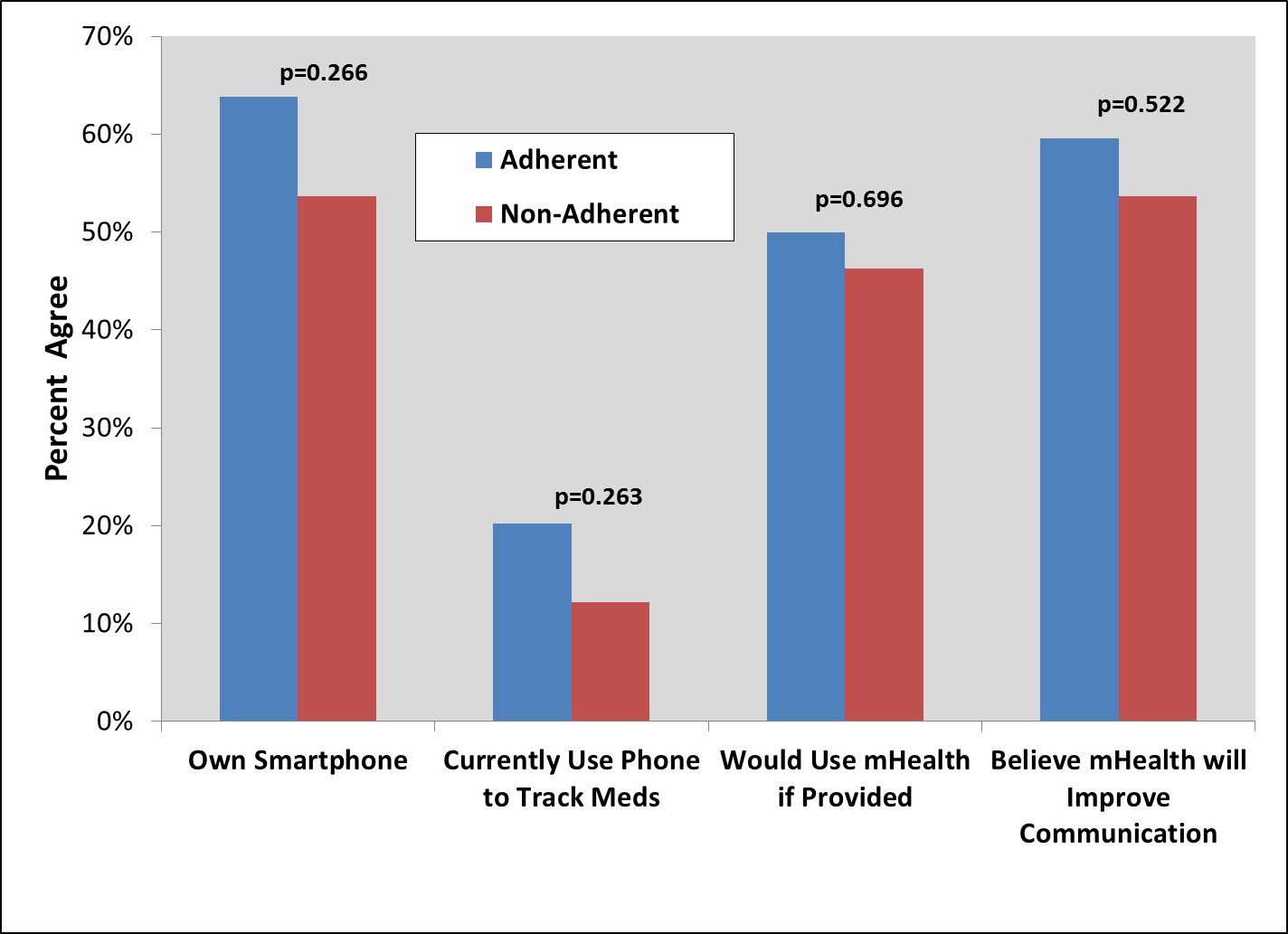R. Browning1, K. Chavin1, P. Baliga1, D. Taber1 1Medical University Of South Carolina,Division Of Transplant Surgery,Charleston, SC, USA
Introduction:
Mobile health technology (mHealth) may be a useful tool to assist in managing medication therapy in complex surgical patients, such as transplant recipients. There is, however, limited data assessing the attitudes of kidney transplant recipients toward this technology. The objective of this study was to survey kidney transplant recipients on smartphone ownership, use of mHealth apps, and willingness to utilize this technology to facilitate medication management.
Methods:
The survey included 13 items assessing demographics and general health, 26 items regarding use of technology and willingness to use mHealth, and 15 items regarding medication adherence and side effects. The survey was administered to patients in a kidney transplant clinic. Following consent, the patient was provided with an iPad to complete the survey. Standard descriptive and comparative statistics were utilized for data analysis.
Results:
Between May and July 2015, a total of 139 kidney transplant recipients participated in the survey. The results indicate that 96% (129/135) of respondents own a mobile phone, 61% (82/135) own a smartphone, 30% (40/135) had prior knowledge of mHealth and 7% (10/135) were already using a mHealth app. The majority of respondents (78%, 105/135), reported a positive attitude toward the use of mHealth for medication management. Smartphone ownership has increased over the past three years (61%, 82/135 vs. 35%, 35/99; p=0.0002) and smartphone owners were more likely to strongly agree with the use of mHealth (52%, 43/82 vs. 43%, 23/53; p=0.006). Patients under 55 were more likely to own smartphones (75%, 51/68 vs. 46%, 31/67; p=0.0008) and more likely to strongly agree with the use of mHealth (62%, 43/68 vs. 36%, 24/67; p=0.0152). African Americans were more likely to strongly agree with the use of mHealth than Caucasians (53%, 45/85 vs. 37%, 17/46; p=0.0997). Self-reported non-adherence was higher in Medicaid patients (37% vs. 21%, p=0.049), but non-adherence did not appreciably influence a patient’s willingness to utilize mHealth. Mean years from transplant was higher in those that reported severe side effects (4.3±5.4 vs. 2.0±3.3, p=0.013), but severe side effects were not significantly associated with willingness to utilize mHealth.
Conclusion:
In kidney transplantation, smartphone ownership continues to dramatically increase and respondents have a positive attitude toward the use of mHealth for improving medication management. Patients that were non-adherent or reported severe side effects were equally willing to adopt this technology, suggesting that it may be a promising tool to help improve medication-related outcomes in vulnerable populations.
